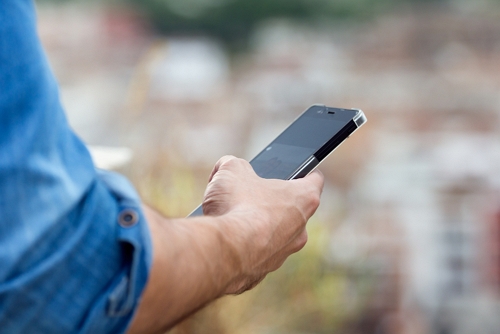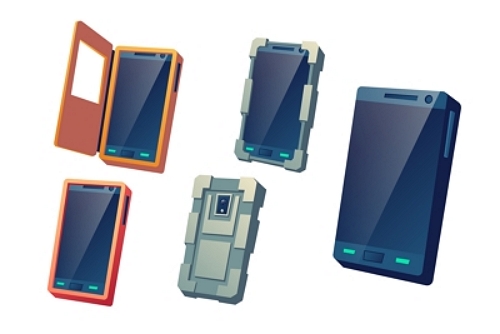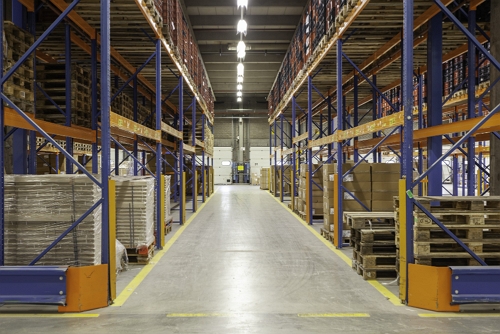What Is Rugged Mobile Phone? Is It the Right Match for Your Company?
Imagine you're working in tough conditions - maybe in construction, logistics, or warehouse. You've got important tasks to do, and you rely on your mobile phone to get things done. But the usual phones can't handle the challenges of your workplace - falls, extreme temperatures, shocks, moisture, and dust.
That's where rugged mobile phones come in. They're built to be tough and reliable, with features like Ingress Protection (IP) ratings and Military Standard (MIL-STD) qualifications. These phones can take a beating and keep working, making them perfect for demanding job sites.
So, let's break it down. What exactly are rugged devices, what types are out there, and why should you care? We'll also look at how these phones benefit different industries and talk about the common issues users might face.
- Part 1 : What Is a Rugged Device?
- Part 2 : An Overview of Rugged Device Features
- Part 3 : Different Types of Rugged Mobile Devices
- Part 4 : The Key Benefits of Rugged Device
- Part 5 : Rugged Devices in Industry
- Part 6 : A Handy Checklist: Choosing Between Rugged Devices and Regular Ones

- Part 7 : How to Troubleshoot Device Issues with Rugged Device Management?
- Part 8 : FAQs
Part 1. What Is a Rugged Device?
A rugged device ensures reliability and has the durability to withstand extreme weather or work conditions. Their solid build quality and high-end protective features make rugged mobile devices successful.
Since modern businesses depend on smooth communication between the field workforce and management for efficient work processes, rugged devices have gained favor due to their ability to perform under harsh conditions and keep consistent communication.

Part 2. An Overview of Rugged Device Features
The definition of rugged devices lies in their features. Take a look at the characteristics that make rugged mobile devices better compared to a standard consumer-grade phone:
IP Ratings:
The greatest enemy of any electronic hardware is dust and liquid. Rugged mobile devices have an Ingress Protection (IP) rating that defines how much liquid and solid ingress the device can withstand. It is expressed by two digits signifying the extent of protection, such as IP68.
Certifications:
Rugged devices come with a Military-grade certification (MIL-STD). It ensures the device can withstand a certain threshold of humidity, drop, vibrations, heat, and cold conditions.
As part of military hardware, some devices can withstand gunfire. In fact, MIL-STD-810G is the most challenging test that puts the device through 29 tests to check its toughness.
Battery Life:
A phone that consumes power or has a low battery capacity can cause downtime due to frequent charging. According to Conker, any delay in communication or feedback leads to decreased productivity, charging businesses more than $46 million in downtime costs annually.
Durable phones solve the potential issue by providing more than 15,000mAh of battery life.
Tough Internals:
Your standard devices are often crafted with bodies and internals made of plastic, glass, or aluminum, following the manufacturer's design.
But when it comes to a rugged mobile phone, it's a different story. Think of it as a tank, built with steel reinforcement to provide robust protection against drops and vibrations.
Enhanced Screen Protection:
The most common damage to modern mobile devices is screen damage. Manufacturers use simple glass for a typical mobile phone screen. As a result, it shatters when dropped face down, making it unusable.
In comparison, rugged devices come with toughened screen glass that is scratch and drop resistant. There is also the use of a durable and thicker rugged case that adds to the protection of the smartphone screen.
Unique Features:
Besides having incredible uptime through hardware and software modification, rugged corporate mobile phones also feature RFID scanners, QR Code Scanners, IR scanners, voice recorders, push-to-talk buttons, and many more hi-tech additions.
Part 3. Different Types of Rugged Mobile Devices
Mobile devices are not limited to smartphones. A rugged tablet, laptop, and IoT device are also part of portable electronics used for enhancing remote workplace efficiency.
Manufacturers categorize every rugged device into three divisions:
Semi-Rugged
The design of these devices targets commercial and business-related audiences. As a result, they are relevant for environments with limited exposure to heat, vibration, moisture, and potential fall height.
Generally, healthcare, warehouse, and retail can take advantage of these devices' price/performance ratio, making them durable and feasible for most businesses.
Fully Rugged
Unlike semi-rugged devices, fully rugged offers higher protection standards. Businesses can utilize them for field workforces such as construction, public safety, and security services. Plus, these devices perform consistently under direct sunlight or challenging temperature conditions.
Typical mobile devices components such as processors or storage devices start to thermal throttle leading to performance degradation, but fully rugged features keep them running at their maximum potential.
Ultra Rugged
If a user is aiming for the highest level of durability against the worst possible conditions, then ultra-rugged devices are a solution. They can perform under extreme sub-zero temperature conditions and withstand falls from elevations spanning floors onto concrete floors.
What's more, these devices can survive bullets and direct sun heat for public safety and military personnel.

Part 4. The Key Benefits of Rugged Device
Businesses can utilize the capabilities of rugged devices to achieve benefits that are not just limited to productivity and efficiency. Rugged devices provide stability, reduce the burden on the IT and HR departments, and help reduce device breakdown costs.
Some of the main benefits of the use of rugged devices in business operations are:
1Timesheets:
Calculating the working hours of the remote workforce at construction sites and logistics is a tedious task if done manually.
Rugged mobile phones use location tracking to trigger specific actions such as marking attendance, maintaining leave records, and automatically calculating payrolls.
2Document Management:
Handling document data is tough when you have to do it manually. Dealing with revisions, organizing into folders, searching – these are some of the challenges documents face, especially for those not working in a typical office setup.
But if you're a field worker, you're in luck. With the right software and a mobile device, like a sturdy tablet or laptop, you can easily locate and access the latest construction drawing.
3Seamless Communication:
Staying connected to the project team is vital. Traditionally frontline workers use walkie-talkies or radios to keep connected. Rugged smartphones come with a dedicated push-to-talk (PTT) button that turns any smartphone into a radio-like device.
According to a survey conducted by Samsung, 44% of the field workforce prefers using PTT to establish communication.
4Easy Access to Data:
Cloud storage is ideal for storing data safely and securely. Employees should be able to access data from anywhere in real-time.
Rugged devices have robust connectivity to keep them connected with the company's database. They also have advanced level protection for data stored on the device. It keeps confidential corporate data secure.

Part 5. Rugged Devices in Industry
Industries benefit uniquely from rugged media devices such as durable phones, tablets, and laptops. The type of media device, its capabilities, and software requirements depend on the nature of your company's work.
We have compiled a list of industries for our readers to find relevance in their respective categories:
Process Industry
Keeping track of equipment health is crucial for maintaining smooth operations in various industries like refineries, power plants, paint factories, and chemical production. It involves monitoring factors like temperature, pressure, color, and levels to ensure the final product meets design specifications.
Yet, working in the field comes with its challenges, like extreme heat, potential falls, and exposure to moisture. These harsh conditions can easily harm a standard device. That's why advanced, fully rugged devices come into play, offering extra features to guarantee reliability in tough work environments.
Healthcare
Post pandemic situation has changed the dynamic of every workplace, but the impact on the healthcare sector is massive. The healthcare industry now utilizes digital technology to enhance its diagnostic capabilities and monitoring.
For example, semi-rugged smartphones specialized for healthcare have ethanol resistance to ensure cleanliness during data collection. Additionaly, mobile medical applications, health apps, and remote patient monitoring have shifted the healthcare industry's work process to digitalization.
Logistics
In logistics, portable devices such as semi-rugged tablets and tough phones come with GPS that aids in tracking location. The long-lasting batteries are beneficial for long routes requiring minimal charging and ensuring maximum availability.
Industries are able to utilize these devices to monitor routes, calculate mileage, and ensure minimum downtime, while users can immediately report incidents, and employers can ensure the asset follows the designated route.
Warehouse
Storing inventory for retail or consumers requires tracking every product before its dispatched. Marking locations for storage and retrieval requires real-time reporting for efficient and improved business intelligence.
Durable phones help employees connect to the company's WiFi and ERP system to maintain live data acquisition. Moreover, rugged mobile devices have a highly touch-sensitive screen that remains operational with gloves and provides durability that can withstand face drops. As a result, it increases in/out volume boosting sales and reducing costs.

Construction
The most challenging and harsh working conditions are at construction sites. They are equally demanding for mobile devices as they are for workers.
Fully rugged phones and tablets have the durability and bright screens a worker requires during broad daylight, so every worker can immediately communicate with the managers and access tools to enhance productivity.

Manufacturing
Continuously improving the manufacturing process is every company's mission. Durable smartphones with semi-rugged case features, such as infrared scanners and RFID, can integrate with software to record data from the production line.
The valuable insights are shared live with the management. In addition, line supervisors and engineers can generate reports from the data for their meetings, saving valuable time and making the overall process economical.
Part 6. A Handy Checklist: Choosing Between Rugged Devices and Regular Ones
Here is a handy 9-step checklist that can help in deciding whether your organization needs a rugged or a regular smartphone to enhance its productivity:
1Exposure to Liquid Ingress
If your work involves a lot of exposure to liquids, there's a chance that regular smartphones might get damaged. They could start acting up or even stop working completely.
On the flip side, semi-rugged devices are designed to handle being submerged in water for an extended period. The key is to make sure you choose one with the right IP rating that matches the demands of your work environment.
2Dusty Work Environment
Whether you're on a construction site, a survey location, or a remote oil rig, dust is a constant companion. In a regular phone or earpiece, dust getting into the ports can lead to malfunctions.
The solution? A smartphone with an IP rating. It's built to withstand solid particle ingress, ensuring it stays operational without the need for frequent cleaning or maintenance.
3Register Touch with Gloves
When your field workforce is out in the rain or dust wearing gloves, operating a regular smartphone can be a challenge. That's because the typical phone screen won't register touch through the glove, and it tends to stop working when rain or liquid drops hit the screen.
Now, switch to rugged devices. They make things simple. These devices can easily register touch, even with liquid or dust on the screen, all while your team continues to work wearing gloves.
4Exposure to Chemicals
When your job involves handling chemicals, like in healthcare, ultra-rugged devices are the way to go for your company. Regular smartphones can't handle harsh chemicals like isopropyl alcohol or bleach. The materials break down, and you might end up with a non-functional phone.
In contrast, a specialized device can even withstand washing devices in alcohol and maintain their operation.
5No Downtime
Ordinary smartphones overheat if kept operating for a long time. Their screen clarity degrades, and consistent operation for long hours may cause them to stop functioning.
A rugged device will have dedicated cooling systems to keep the device performing with consistency with no thermal throttling behavior.
6Long-Term Operation
Regular smart media devices come with small batteries, usually in the range of 2000-6000mAh capacity. In comparison, rugged smartphones can have up to 20,000mAh battery and ultra-fast charging, eliminating the need for constant charging.
Therefore, in case your business involves 24-hour operation, rugged devices ensure maximum work and minimum charging times.
7Work in Sunlight
Working in broad daylight may decrease the visibility of the smartphone due to a limited brightness of approx 700 nits depending on the smartphone manufacturer. A rugged phone can have up to 2000 nits, making it usable under direct sunlight.
In workplace that requires employers to work in daylight, having a high-brightness smartphone for flawless operation is ideal.
8Phone Drop Potential
When working in industry involves height work, such as in construction or surveying high-elevation land, then there is potential for dropping the phone.
It is because regular smartphone screens and body design does not consider falling onto a solid surface. Whereas MIL-STD ratings in fully-rugged devices make them shock and vibration resistant.

9Extreme Temperatures
When temperatures get extreme, regular consumer-grade phones might give up on you. Electronics can act finicky in high heat or freezing cold.
On the other hand, rugged phones with MIL-STD certification are made to keep performing smoothly, ensuring no interruptions for the users.
Take a look at your organization, run through the checklist, and figure out which type of rugged device fits best for your employees' workplace.
Part 7. How to Troubleshoot Device Issues with Rugged Device Management?
In organizations relying on rugged devices for efficiency, managing a fleet of devices can be as challenging as managing the workforce itself. This often leads to IT issues that demand the IT department's intervention.
Now, picture this: if every employee had to be physically present for troubleshooting, it would put immense pressure on the IT department and increase downtime for remote workers.
That's where rugged device management software, like AirDroid Business, comes to the rescue. It not only helps maintain device performance and enforce security measures but also offers advanced deployment features. Adding a device to the company's network becomes a breeze, ensuring it's protected and controlled by the management software.
Here's how you can facilitate a streamlined device management with AirDroid Business:
●Software Updates:
If a rugged smartphone's applications and operating system are not updated. It may cause them to malfunction, stop working, or become susceptible to hacking. The IT department can utilize application management service (AMS) from their AirDroid Business software to a specific group of employees.
For example, the employer can deploy security patches that protect the devices against emerging cybersecurity threats. It will protect personal and corporate information from adversaries. IT admins can also send a set of apps to all company employees through rugged device management and keep them up to date.
●Remote Monitoring:
There could be issues like older Android or iOS versions on the rugged device. It may lead to the malfunctioning of some applications. An MDM software, AirDroid Business, can perform monitoring to ensure the device is running with the latest operating system.
The IT department can remotely check the device statistics and operating system. If found older, they can perform remote debugging to fix the issue.
●Prevent Potential Data Leaks:
The most significant loss to an organization is due to a lost or stolen device. It can potentially lead to the loss of sensitive data.
In some cases, the data leakage may lead to corporate espionage. Rugged device management software like AirDroid Business can deploy policy with workflow triggers that initiate remote lock and wipes based on location tracking or jailbreak attempts. Security systems ensure no data leaves the employer's network.




Leave a Reply.